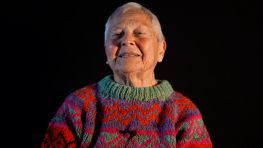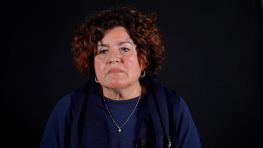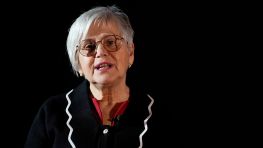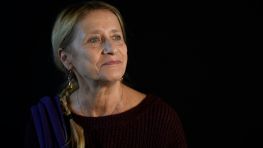 A life for others
A life for others THE CURE IS TO PUT YOUR HANDS IN THE MUD
I decided to become a nurse at the age of 2-3 following the meeting with Sister Giuseppina, when I was hospitalized at Koelliker, thanks to which I understood that HELPING OTHERS IS GOOD FOR YOUR HEALTH. When I said I wanted to be a nurse no one took me seriously, especially my family and especially my father who also opposed me. I am a nurse who attended regional school with only two years of high school, without a high school diploma and my father was very angry because he said I had to study. He forgave me of this around age 92, shortly before he died and thanks to my students. When I graduated I wanted to go to work where no one wants to go: in general medicine. They didn't send me there. They sent me to an ultra-specialist department: the bone marrow transplant. It was a department that changed my life. It was a strong experience that changed the meaning of my life, of my perception of life. I reactivated my childhood experience that HELPING OTHERS HELPS THEMSELVES. I'm still very happy doing the work I do. Without a patient to do something for I feel bad. Even though I got so pissed off, I don't know what burn out is. I'm very fiery, I say everything that comes into my mind but I'm not angry. THE CURE IS PUTTING YOUR HANDS IN THE MUD, it's staying in contact with the spirit, it's giving a name to things. Care is conflict, even with oneself because each of us can only heal with what we have. At nursing school they said I couldn't be a nurse because I was too emotional a person. Dr. Olessina, my mentor, told me: "Remember that what is your curse will be your asset." And so it was. Mental health is my love. Care has many souls and each of us is polarized towards a soul of care. What I would like to say to the students is: "Look for your place!". I worked for 23-24 years in SPDC, the tables were flying and I was in the middle. One day an old nurse told me: “You have to stand there and disappear in the eyes of the patients. If you do this you will understand many things." I didn't just train in the classroom: I did 35-36 years of personal analysis (25:05). I learned to walk in the dark because in mental health you don't always know where you're going. It's an area that, if a professional needs all the certainties, leads to a hell of a life. I always give this advice to my students: "Try not to suffer too much, look for a place where you like the type of assistance that patient requires! This is the greatest protection against burn out."
Video table of contents
There is no a table of contents
Interview information
Country: IT
Region: piemonte
City: torino
Maria Grazia Imperato
Date of birth: 12-10-1967
City: Torino
School: Professional qualification
Profession: Nurse
Languages: italiano
Document by: ELISA LAZZERI, STEFANIA PICCIRILLO
Video by: Davide Porporato, Andrea Icardi
Created: 02-02-2024
Questo video fa parte del seguente archivio
Knowledge of healing
Knowledge of healing
The archive “knowledge of Healing” was created with the aim of giving space to the narration of the places of healing from a particular point of view: that of the patients and the medical staff. A point of view which differs from the statistical one that official relations use to describe the medical field. This is how we find new stories about how throughout time the relationship between patients and medical staff has changed, how knowledge has helped to bring change by offering the chance to critically revisit the training methods nowadays used.






